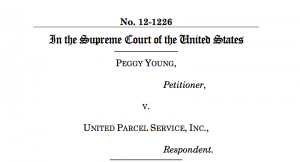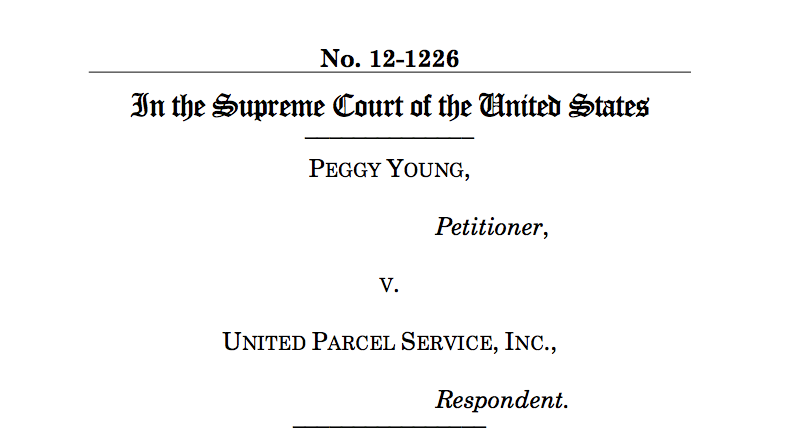Law professors Thomas Berg and Teresa Collett, along with contributing professor Liz Schiltz, comprised an amicus curiae, or “friend of the court” brief, for the current Supreme Court case Young v. UPS, siding with plaintiff Peggy Young.
In the case, Young sued her employer, UPS, because the company would not make certain accommodations required by her doctor when she was pregnant. Her job as a deliverer required her to lift up to 70 pounds, but her doctor said she could not lift over 20 pounds. When she asked for a temporary light-duty position offered to other employees, she was refused.
Berg said this brief included 23 different pro-life groups all interested in the rights of pregnant women in the workforce. A friend of the court brief presented a prime opportunity for these organizations to support Young’s case. This type of brief is common yet extremely valuable in the court system, Berg said.

“(The friend of the court brief) is for various organizations to file briefs if they are not actually parties to the case, but they have some kind of interest in the case or they have some knowledge or perspective that they can provide to the justices,” Berg said.
Collett said both she and Berg received requests from pro-life organizations to write a brief in support of Young. They wanted the courts to point out how a problematic pregnancy should not be discriminated against, especially if the discrimination could be harmful to the baby.
However, it is far from a one-sided case. Many organizations on both sides of the political spectrum are reaching out in support of the plaintiff.
“You’ve got this odd coalition of feminist groups and pro-choice groups, who rarely talk about the choice to continue the pregnancy, and pro-life groups, who pretty much want women to only choose to continue their pregnancy,” Collett said. “I think it’s caused some interesting conversations among people who usually see themselves as having no common interest.”
The case raised many red flags in relation to important laws, such as the Pregnancy Discrimination Act, which the brief dissects in favor of Young.
It also raised questions about protocol involving workers’ equality rights and which employees and conditions should receive accommodation. Some of these questions include if all conditions, from health issues and off-the-job injuries to pregnancy, should be covered or if companies should only be held responsible for accommodating those with restrictions from on-the-job incidents.
In accordance with the UPS policy at the time, Young was not covered for a temporary light-duty position because the situation involved a condition created off the job and did not qualify as a disability. UPS required accommodation for those who were hurt on the job or had some disability, Collett said.
Since the lawsuit was filed, UPS has changed its company policy to state the accommodations they will give a pregnant employee. Collett said in a way, supporters have already won the case, but the brief is part of a bigger fight to get other corporations to change their policies to accommodate pregnant women.
“We aren’t talking about forcing companies to accommodate anyone. We’re not asking for special treatment,” Collett said. “We’re just saying if we choose to make accommodations for anybody, then you need to include (pregnant women) in that accommodation as well.”
As for the brief, Berg said it is derived from unique circumstances, and he hopes everyone at the university can support it.
“It’s pretty unusual that there would be three law professors from one school filing or working on or helping to produce a brief that’s this level of importance,” Berg said. “It’s good to see the St. Thomas name involved in something like this that hopefully people on both sides of the issue can get behind.”
Lauren Smith can be reached at smit7607@stthomas.edu.

